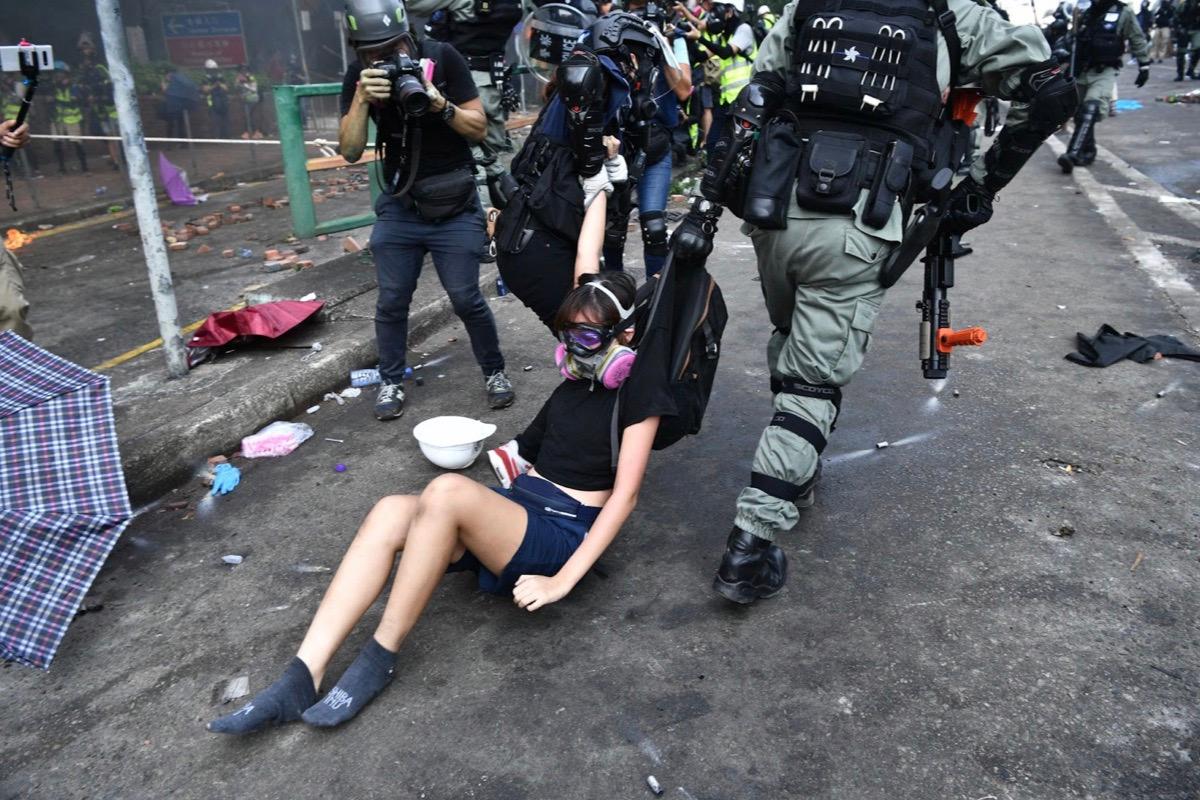Over 10,000 people were arrested during the 2019 Hong Kong anti-extradition movement. But the number of people who have been prosecuted is less than 3,000. The Department of Justice committed the low number of resolved cases was due to “insufficient evidence,“ ”no immediate need for follow-up,” or “cases still under investigation.” The question remains, how to treat these unresolved cases?
Even in some prosecuted cases judges questioned the DoJ regarding, “insufficient evidence.”
On Nov. 23, Tik Chi-yuen, a self-claimed “unbiased” legislative councillor, quoted the Secretary of Justice Lam Ting-kwok after an Ante Chamber meeting on the same day, “Lam said they might seize proceedings and close most cases from the 2019 Hong Kong Protests.”
Professor Chung Kim-Wah, a former Deputy CEO of the Hong Kong Public Opinion Research Institute (PORI), said even if the Hong Kong government might want to acquit the arrestees, it might not be the one to make the call.
Security Bureau reported, as of Aug. 31, that 10,279 people in total were arrested by the police due to the anti-extradition movement. The Hong Kong Police Force has prosecuted 2,893 of them.
The police arrested 1,754 people under 18 but prosecuted only 517.
Among the arrestees, 2,044 people have completed judicial proceedings. About 80 percent of the 2,044 cases had to bear legal consequences. Among them, 1,631 people were convicted and sentenced to jail, given community services, penitentiary orders, or probation.
In response to media inquiries, the Department of Justice stated more severe cases—those of rioting and attending an illegal assembly—would be handled exclusively by the Special Task Force of the Criminal Prosecution Section.
The criminal prosecution department has received 1,215 cases from the Hong Kong Police. The department stated they had offered legal advice on 1,201 of them. The number makes up 98.8 percent of the cases handed over by the police.
The department explained that law enforcement would not submit every case to the Department of Justice, citing “insufficient evidence,“ ”no immediate need for follow-up,” or “cases still under investigation.”
Another possible action would be closing the cases following the established internal procedures.

Speaking with The Epoch Times, Prof. Chung pointed out it would take a long time to process over 7,000 unresolved cases from the anti-extradition protests. He questioned if the stacking up might burden the government’s workload and resources.
Who Is the Final Decision-Maker
Chung continued, “Even if the Secretary of Justice personally feels closing all related cases can be an option, the government may not act on it. Besides, is it really up to the government to make the call?”Chung argued that closing cases and dropping charges would depend on who has the final say, “Is it the National Security Bureau, the Liaison Office in Beijing, or the Hong Kong and Macao Affairs Office?” the professor asked.
Zheng Yanxiong, director of the Office for Safeguarding National Security, spoke at the National Security Law Forum 2021, and claimed the anti-extradition movement was a “subversion of the regime” and a “violation of sovereignty.”
He openly said there would be “zero compromises, softness, and illusion regarding the protests.” Zheng stated firmly that the only way to handle the protesters was to retaliate and punish them through a court of law.
Zheng was appointed as the head of Hong Kong’s security agency by China Regime right after NSL was implemented in Hong Kong in July 2020. He was a hardliner known for stamping out protests on the mainland.
Schools Dismissed Students for Reputation
Tik Chi-yuen said many arrested protesters were university students. Tik affirmed that students should be given a second chance to return to the right path.Multiple media reported many students went to prison due to their involvement in the anti-extradition movement. The jailed students would later receive a second “disciplinary judgment” from their schools or universities.
An intern publication from the Chinese University of Hong Kong (CUHK) revealed that a CUHK postgraduate student was sent to jail for four months for attending an unauthorized assembly. The magazine disclosed that the university called the student for a disciplinary hearing a month after being released from prison.
The student was penalized for “damaging the institution’s reputation and image” by the conviction. The magazine reported three other convicted secondary school and university students were also being punished and expelled.




